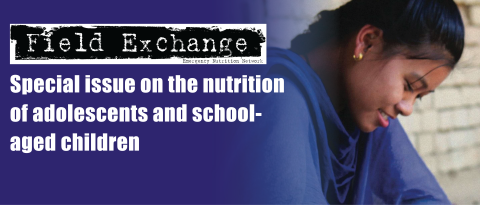COVID-19 pandemic impacts on adolescents’ lives in sub-Saharan Africa
Wang, D., Chukwu, A., Millogo, O., Assefa, N., James, C., Young, T., Lankoande, B., Workneh, F., Hemler, E. C., Korte, M. L., Mattei, J., Soura, A. B., Sie, A., Oduola, A., Berhane, Y., & Fawzi, W. W. (2021). The COVID-19 Pandemic and Adolescents’ Experience in Sub-Saharan Africa: A Cross-Country Study Using a Telephone Survey, The American Journal of Tropical Medicine and Hygiene. Available at: https://europepmc.org/article/med/34161298
Despite low COVID-19 case fatality rates among adolescents, the public health measures put in place to combat the pandemic may negatively impact the development and health of adolescents. This study – conducted in rural and urban locations in Burkina Faso, Ethiopia and Nigeria using computer assisted telephone interviews – examines COVID-19 knowledge, perceptions and preventive strategies among 1,795 adolescents aged 10-19 years and the impacts of the pandemic and its mitigation strategies on various aspects of the lives of adolescents in sub-Saharan Africa.
The results show that adolescents’ knowledge of COVID-19 symptoms, transmission and prevention was limited, especially in rural settings. One major impact of the pandemic on adolescents was the exacerbated inequities in education. Among adolescents who were enrolled in school, most reported school closures in response to the pandemic (> 95% in urban Burkina Faso and both sites in Ethiopia and ∼60% in rural Burkina Faso and both sites in Nigeria). Many adolescents (ranging from 23-81% across the study sites) did not receive any education during the pandemic. Many adolescents (44-83%) self-assessed as having less ability to learn during the pandemic. In Burkina Faso and Ethiopia, around half of the adolescents (43-51%) perceived that it would be very difficult to catch up on their education after the pandemic. Even in countries where alternative education channels were available, these were not accessible or affordable to adolescents living in poverty or in remote areas. Another major impact of the pandemic on adolescents was evidence of reduced food intake. Decreases in the consumption of the major food groups were common across the sites including a reduction in the consumption of staples (ranging from 9-54%), pulses (29-49%), fruits (18-41%), vegetables (3-34%) and animal-source foods (11-29%). In terms of the impact on mental health, levels of depression, anxiety and psychological distress were generally reported as low across all the study sites.
Understanding the impacts of the COVID-19 pandemic on adolescents is important to the design and targeting of interventions during and after the pandemic especially in sub-Saharan Africa where adolescents are often overlooked in public programming. This study serves as an initial evidence base for policymakers to design and implement such interventions.


